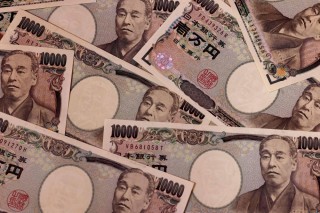Loading
Search
▼ Many Have Seen A Weak Yen As Being Good For Japan. That View Is Fading Fast.
- Category:Other
Despite the conventional belief that a weak yen is a blessing for the Japanese economy, headlines over the past several weeks have painted a very different picture.
Frustration over the yen’s recent slide is growing among policymakers and in the business community, while some economists say the fall is hurting the nation’s economy more than helping it.
During a parliamentary session on April 18, Finance Minister Shunichi Suzuki said it’s not easy to state categorically that a weak yen is good or bad, because it has both merits and demerits.
However, amid ongoing economic upheaval in which surging crude oil and other commodity prices are placing a burden on companies and households, “I don’t think we can call the current declining yen’s value a good weak yen. It is rather a bad weak yen,” Suzuki said.
Bank of Japan Gov. Haruhiko Kuroda has repeatedly stated that a weak yen is a plus for Japan, and he reiterated this view during the same parliamentary session. However, Kuroda appeared to express some caution about the currency’s rapid fall.
“We need to bear in mind that currencies’ excessive movements can be negative for the economy, as it increases uncertainties,” he said.
Kuroda also mentioned that rapid fluctuations could also derail companies’ business plans.
Amid a widening gap between dovish central bankers in Japan and hawks in the U.S., along with growing import costs stemming from Russia-Ukraine war, the yen has plunged to its lowest level against the dollar in years. It has dropped more than ¥10 in just about a month and half, and breached the ¥129 level on April 20.
The BOJ is holding policy meetings on Wednesday and Thursday, but many observers believe the central bank will not announce any major policy changes.
Although the weak yen usually benefits exporters and boosts companies’ overseas earnings, business leaders appear to be increasingly uneasy about the recent moves.
“Crude oil prices are really soaring. It’s seriously tough,” Toru Nozawa, chairman of the Japan Paper Association, said during a news conference last week.
Because the paper industry needs to import coal, heavy oil and natural gas, “the weak yen is doing more harm (than good),” he added.
Earlier this month, Tadashi Yanai, chairman of Uniqlo parent Fast Retailing Co., also expressed concerns over the impact of the yen’s tumble.
“The weak yen brings no merits at all. I think there are only demerits for the overall Japanese economy,” Yanai said during a news conference to announce the firm’s earnings on April 14.
“Japanese companies import raw materials from all over the world to process them, add value and then sell them. Given that business practice, weakening of the home currency is not a plus.”
Despite import costs rising, Fast Retailing remains cautious about increasing the prices of its clothing, since “(domestic) consumers are very sensitive to price hikes,” Yanai said.
But “if raw material prices double or triple, it will be impossible to sell them at the current price tags.”
Akio Mimura, head of the Japan Chamber of Commerce and Industry, also said the current weak yen is not good for the Japanese economy.
Instead, he said it is inflicting damage on small and midsize companies.
“We’d like the government to analyze how the weak yen is affecting the Japanese economy,” Mimura told a news conference last week.
As traditional views about a good weak yen fade in business circles, some economists are expressing similar opinions.
Under normal economic circumstances, depreciation of the yen is believed to bring a net positive effect to the Japanese economy, as it expands companies’ profits from exports and overseas investments and prompts them to boost capital expenditure, the Daiwa Institute of Research said in a report published Friday.
Yet as the Russia-Ukraine war further clouds the economic outlook, companies are tending to be more hesitant about increasing capital investment, the report said.
In addition, a weak yen normally revs up inbound tourism, but Japan’s borders remain closed to tourists, with no signs of an imminent change in policy emerging.
“Under these circumstances, if the yen’s value continues to fall, we will only see a negative impact of increases in import costs. In that sense, we can say the current yen’s downswing is ‘a bad weak yen,’ as its adverse effects are greater than the positives,” the report said.
- April 27, 2022
- Comment (0)
- Trackback(0)


